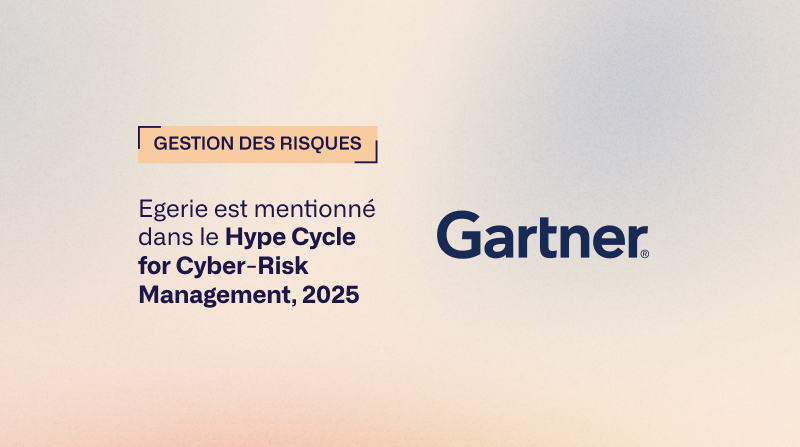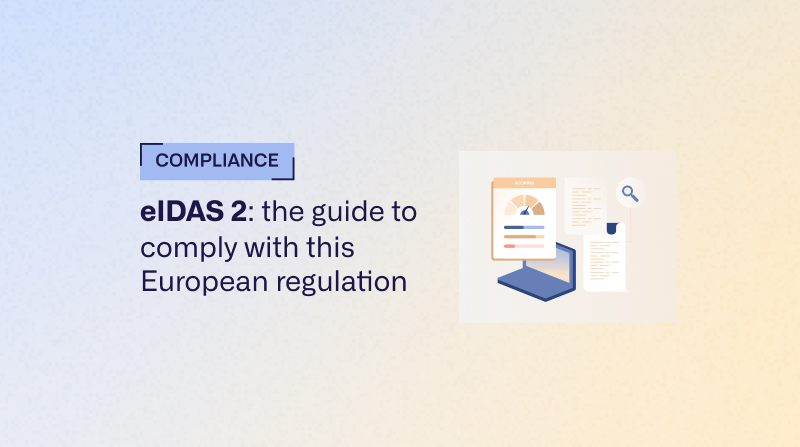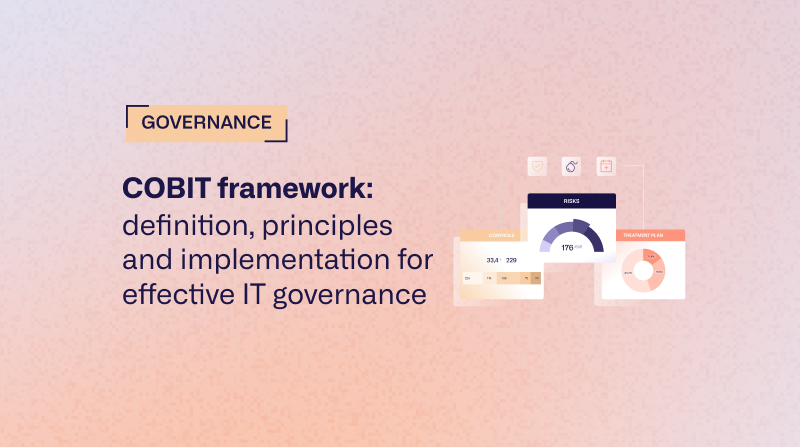DPO: meaning, role and impact for your business
The Data Protection Officer (DPO) has become a central figure for corporate compliance and governance. This role, which has been essential since the entry into force of the GDPR, ensures the protection of personal data and guides the organization towards safer practices. Let's take stock in this article.
The DPO, (Data Protection Officer), or Data Protection Officer, is much more than a simple guarantor of compliance RGPD. A true data protection conductor, he advises companies to align legal obligations with business objectives. For an organization, understanding the meaning of the DPO, its missions and its impact is essential to transform a regulatory constraint into a sustainable competitive advantage.
Whether you are a manager, legal manager or RSSI, the function of Data Protection Officer is a lever for cyber governance. Mastering this role well helps to avoid heavy sanctions, but also to strengthen customer trust and to manage the risks associated with the treatment of data. But what is the real meaning of this position? What are its concrete missions and when is its designation mandatory? This article guides you to understand everything about the DPO function and its key role in your company's strategy.
What is a DPO? Definition and meaning
The DPO (Data Protection Officer), or Data Protection Officer in French, is an expert responsible for overseeing an organization's data protection strategy, in accordance with the General Data Protection Regulation (RGPD). Its main function? Ensure that all personal data processing activities respect the law and the rights of the persons concerned.
The meaning of the DPO beyond the GDPR
The meaning of DPO goes far beyond a simple checkbox for the compliance of your network infrastructure. The DPO embodies the culture of data protection within the company. He is not only a controller, but an advisor who helps the organization incorporate the principles of” Privacy by Design ” and” Privacy by Default ” in all his projects. This means that data protection is thought of as soon as a new service or product is designed.
Why is it important for your business?
- A pilot of GDPR compliance: the DPO centralizes questions relating to data protection and serves as a single point of contact for the supervisory authority (the CNIL in France).
- A manager of risks: it identifies, assesses and controls the risks associated with the processing of personal data, a central aspect of Cyber Security GRC.
- One vector of trust : by guaranteeing transparency and respect for rights, the DPO reinforces the trust of customers, partners and employees.
From CIL to DPO: a key evolution
Before the RGPD, which came into force in May 2018, the Correspondent Informatique et Libertés (CIL) existed in France. The designation of an CIL was optional and its role was mainly advisory. The transition to the DPO marked a major change: the Data Protection Officer has missions And responsibilities extents. Its designation has become mandatory in many cases. This evolution reflects a global awareness of the strategic importance of personal data And of their safeguarding.
DPO missions: operational and strategic role in the company
The role of the DPO is defined by theArticle 39 of the RGPD. Its varied missions cover legal as well as technical and organizational aspects. In summary, the Delegate is the guarantor of compliance with the legal framework, but also a strategic partner for all the company's businesses.
Informing and advising the organization
The first mission of the DPO is to disseminate a culture of safeguarding Of data within the organization. He must inform and advise the data controller, the subcontractors And the employees on their respective obligations under the GDPR. Not to mention the other applicable legal provisions such as the NIS2 directive And the DORA regulations
→ This includes training teams, answering their daily questions, and providing documentation on best practices. The DPO acts as an internal contact for all questions relating to data protection.
Check compliance with the regulations
The DPO is responsible for monitoring, independently, the company's compliance with the GDPR. This control mission extends to all aspects of the processing of personal data. Concretely, he must:
- Keep a record of activities of treatment : this essential document lists all the processing of personal data carried out by the company.
- Conduct data protection impact analyses (AIPD): for treatments likely to generate a high risk for the rights and freedoms of individuals.
- Conduct compliance audits : to verify the effective application of data protection policies and procedures.
Cooperate with the supervisory authority
The DPO is the preferred contact point for the supervisory authority, such as the CNIL. He must cooperate with her on any matter relating to data processing and respond to her requests. In the event of a data breach, it is often the DPO who oversees the notification to the authority and the communication to the persons concerned, in connection with the Information Systems Security Manager (RSSI).
Managing data governance with a risk-based approach
The role of the DPO is perfectly in line with a governance, risk and compliance (GRC) approach. It's not just about applying rules, it's about understanding and managing the risks associated with data.
A platform like Egerie allows the DPO and the Risk Manager to collaborate effectively. By modeling data processing and linking it to company assets, Egerie offers you a clear vision of risk scenarios. The DPO can thus quantify the potential financial impact of a data leak and prioritize its compliance actions through an objective risk analysis, and not through a simple regulatory checklist.
You want to align your GDPR compliance with your data management strategy risks cyber? Request a demo of our platform.
When is the appointment of a DPO mandatory?
The GDPR does not make the appointment of a DPO mandatory for all businesses. Section 37 of the settling defines three main cases where the appointment of a Data Protection Officer is required. Understanding these criteria is essential to ensure compliance.
Case 1: public bodies
All public authorities and public bodies must designate a DPO, regardless of the nature of the data they process. This concerns ministries, local authorities (town halls, regions), public health institutions (hospitals) or teaching. The objective? Guarantee a high level of protection of citizens' data.
Case 2: regular and systematic monitoring on a large scale
Designation is mandatory for organizations whose basic activities require them to carry out regular and systematic monitoring of individuals on a large scale. Does that seem unclear to you? Let's break down these terms:
- Core activities: These are the key operations that are essential to achieving business goals. For example, for a social network, profiling users is a basic activity.
- Regular and systematic monitoring: we speak here of a follow-up that is continuous or occurs at regular intervals, organized, planned. This includes profiling, geolocation, targeted advertising, etc.
- Large scale: the RGPD does not give a precise figure. The CNIL recommends analysing the number of persons concerned, the volume of data, the duration of processing and the geographical scope. A bank that analyzes the transactions of its millions of customers is an obvious case.
Case 3: Large-scale processing of sensitive data
The appointment of a DPO is also required for organizations whose core activities consist in the large-scale processing of sensitive data (article 9 of the GDPR) or data relating to criminal convictions and offenses (article 10). Sensitive data includes:
- Racial or ethnic origin
- Political opinions, religious or philosophical beliefs
- Trade union membership
- Genetic and biometric data
- Data concerning health or sex life
A hospital that manages the medical records of thousands of patients or a dating application that processes information about the sexual orientation of its users must designate a DPO.
Even if your organization does not fall into any of these cases, the appointment of a DPO on a voluntary basis is strongly recommended by the CNIL. It is a guarantee of maturity and seriousness in the management of data protection within your company.
Internal or external DPO: how to choose?
Once the decision has been made to appoint a DPO, a question arises: should you recruit a DPO internally or use an external DPO? Each option has pros and cons, and the choice depends on the structure, resources, and needs of your organization.
The internal DPO: an expert at the heart of the company
The internal DPO is an employee of the company. He can perform this function full-time or in addition to other missions, provided there is no conflict of interest (for example, a CIO cannot be a DPO, as he would be both judge and party).
Advantages:
- In-depth knowledge of the organization: he knows the culture, business processes, information systems and key players, which makes his work easier.
- Availability and responsiveness: present on a daily basis, he answers questions quickly and is easily integrated into projects.
- Integration of data protection culture: he is a permanent ambassador for data protection within your company.
Disadvantages:
- Cost: The salary for a data protection expert can be expensive.
- Maintaining skills: regulations and threats are changing rapidly, requiring ongoing training.
- Risk of conflict of interest: you must ensure that your other functions do not compromise your independence.
The external DPO: shared and flexible expertise
The external DPO is a service provider, often a law firm, consulting firm, or independent consultant. It carries out its missions on the basis of a service contract.
Advantages:
- Expertise and experience: the external DPO generally has a high level of legal and technical skills, and benefits from the experience acquired with numerous clients.
- Guaranteed independence: its external position ensures objectivity and prevents conflicts of interest.
- Flexibility and controlled costs: the contract can be adapted to the real needs of the company (number of days per month, specific missions), which can be more economical than a full-time position.
- Sharing knowledge: he makes his client benefit from the best practices observed in other sectors.
Disadvantages:
- Less knowledge of the business: he may need more time to understand the specificities of the organization.
- Potentially lower availability: shared between several customers, its responsiveness can sometimes be lower than that of an internal DPO.
The role of technology in the effectiveness of the DPO
Whether the DPO is internal or external, its effectiveness will depend greatly on the tools at its disposal. A DPO who spends his time collecting information in Excel spreadsheets cannot focus on his strategic consulting mission.
One cybersecurity software like Egerie becomes an indispensable ally. Our platform helps you centralize all compliance information (processing register, AIPD, audits) in one place. It automates data consolidation and generates dashboards in real time. The DPO saves valuable time and provides clear and relevant reports to Management.
He is thus moving from an administrator role to that of a real data governance pilot, aligning the requirements of the GDPR with sectoral regulations such as DORA for finance or the management of third party risks under NIS 2.
Data Protection Officer (DPO) FAQ
This section answers the most frequently asked questions about the DPO function, its profile and its interactions within your company.
What is the difference between the DPO and the data controller?
They should not be confused. The data controller is the entity (the company, the association...) that determines the purposes and means of data processing. It is legally responsible for compliance. The DPO, for its part, has a role of advice, control and information. It helps and verifies that the data controller respects his obligations, but he does not make decisions for him. The DPO is independent and cannot receive instructions concerning the exercise of its missions.
Can the DPO be held personally responsible in case of non-compliance?
No, the responsibility for GDPR compliance lies with the data controller (or its subcontractor). The DPO is not personally responsible for any breach by the organization. Its role is to advise and alert. However, it must carry out its missions diligently and professionally. In the event of gross negligence in the exercise of its functions, its contractual (if external) or disciplinary (if internal) liability may be incurred, but it will not replace the company's liability before the supervisory authority. The sanctions of the CNIL are aimed at the organization, not the DPO.
DPO and CISO: how to facilitate joint work?
The Data Protection Officer (DPO) and the Information Systems Security Manager (CSSI) occupy two key and complementary functions within your organization. Where the DPO ensures compliance, the protection of individual freedoms and the control of risks associated with the processing of personal data, the RSSI ensures the technical and operational security of information systems.
For effective cyber governance, their collaboration is essential:
- Definition of a common strategy: the DPO and the CISO jointly design policies of security and data protection in line with the requirements of the GDPR and the reality of business risks.
- Information sharing: the CISO brings his knowledge of threats, incidents and vulnerabilities, while the DPO translates them into issues of conformity, making it possible to establish relevant impact assessments (AIPD).
- Incident management: in the event of a data breach, coordination between DPO and RSSI is essential to investigate the causes quickly, implement corrective measures and ensure mandatory notifications to the CNIL and the persons concerned.
- Awareness-raising and training: together, they pilot awareness-raising actions that address technical aspects (access security, password management) and regulatory aspects (personal rights, obligations related to the GDPR).
This synergy facilitates the establishment of particularly robust cyber governance, where compliance is based on concrete and adapted security practices. Solutions like Egerie's promote this collaboration, by centralizing information and giving everyone a clear vision of risks and priorities for action.
Want to know more? Request a demo now to test our cyber GRC platform.
Can a DPO be shared between several companies?
Yes, the GDPR explicitly allows a group of companies or several public bodies to designate a single DPO, provided that it can be easily reached from each entity. This pooling is an interesting option for SMEs or groups of companies, which can thus access high-level expertise while sharing costs. This is often the model used by external DPOs who serve multiple customers.








